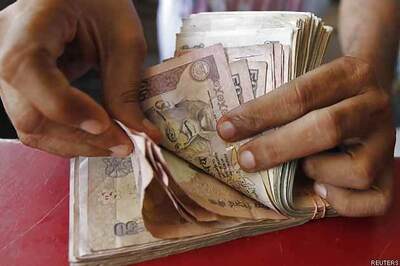
views
New Delhi: Indian Army chief General Bipin Rawat has said there is pressure on Pakistan to act against terror after the Financial Action Task Force (FATF) warned the neighbouring country of blacklisting it.
“There is pressure on them. They have to take action. We would like them to work towards restoring peace. To be on such a 'Grey List' is a setback for any nation,” Rawat was qioted as saying by news agency ANI.
Pakistan on Friday escaped for another four months the ‘Black List’ of the global terror watchdog, the Financial Action Task Force (FATF), but has been severely indicted for failing to deliver on most of its 27 targets and not putting a stop to terror financing.
The FATF has given Pakistan till February 2020 to put its house in order or warned that it would blacklisted. The Paris-based FATF took the decision after its five-day plenary, which concluded in the French capital.
Sources said Pakistan could comply with only five of the 27 points but was saved from the inevitable blacklist by its all-weather friend China, currently in the FATF chair.
Indian government officials pointed out that the evidence against Pakistan is so strong that even China couldn't save it from remaining in the ‘Grey List’, adding it is highly probable that Pakistan next year will be on the Black List.
“This language is the same as used for Iran, which is already on the Black List. Chances of Pakistan exiting the Grey List in the next few years are now reduced to nil. The possibility of a formal Black Listing in February 2020 is now highly probable," an official privy to the FATF proceedings told CNN-News18.
Indian government sources said after the Asia Pacific Group's decision to move Pakistan to the Grey List, the country had resorted to lobbying tactics to save itself from the inevitable blacklisting by FATF.
“Political lobbying is against the laid-down procedures of FATF. Yet, Imran Khan lobbied with at least 24 countries on the sidelines of the UNGA (United National General Assembly) to save Pakistan from FATF blacklisting,” an official said.
Pakistan also took some “superficial action” against Hafiz Saaed and four terrorists of the Lashkar-e-Taiba and Jamaat-ud-Dawa -- Professor Zafar Iqbal, Yahya Aziz, Muhammad Ashraf and Abdul Salam — on charges of terror financing. But Indian government officials pointed out how 118 terrorists, including UN-proscribed ones like the Haqqanis, Masood Azhar, Zakir Ur Rehman Lakhvi and Saeed, continue to get protection from the Pakistani state.
The 39-member FATF works on the principle of consensus and Pakistan convinced three countries — Turkey, Malaysia and China — to vote against the blacklisting proposal brought in by France, the United Kingdom and Germany.


















Comments
0 comment